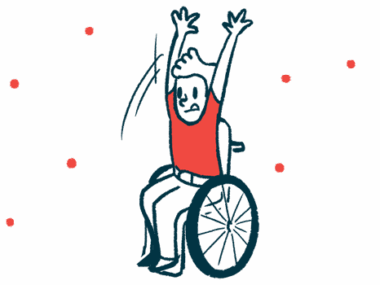Our Lives Are Evidence
Written by |

Every August, I sit across from a nurse and prove that I am, in fact, still disabled.
Disclaimer: I completely understand why assessments are necessary. I’m the beneficiary of countless government programs, from Medicaid to much-needed support funds. I’m not just blessed, I’m privileged as all get-out. I dislike the yearly assessment, but I understand why it’s necessary. Contrary to popular belief, both of those things can be true.
But it’s awkward. The assessment. And not just because I’m recounting personal details to a stranger. Every August, a county nurse sits in my dining room and asks about my disease. Can I bathe myself? Feed myself? Do I exhibit socially inappropriate behavior? The answers remain the same — no, no, and no — but the questions become more incisive with every passing year.
In many ways, performative vulnerability is my job. Writing these columns often feels like airing my dirty laundry. I try to stay positive, because life with SMA isn’t all doom and gloom, but the fact of the matter is this: I am exposing the deepest, most tender parts of myself. Sometimes it’s for the ‘gram; mostly, I just want to cultivate empathy for disabled folks.
My experience with writing has been overwhelmingly positive. I love this column, I love SMA My Way, I love writing stories about unapologetically disabled girls. Vulnerability is easy for me. But sometimes, always when I least expect it, the practice becomes uncomfortable.
Like the reassessment.
It feels like a performance. A well-rehearsed act. Every August, a stranger comes into my house and asks about my bowel movements. Every year, it is up to me to prove that I am disabled enough. Yes, I need hands-on assistance. No, I am not capable of completing activities of daily living. Yes, I require 24/7 care, and here’s why.
Earlier this month, I wrote about SMA Awareness Month (SMAAM). I said that while I still had my qualms, I was willing to acknowledge the benefits of SMAAM. I still feel that way. But my yearly assessment reminded me why I struggle with awareness months. In theory, they’re invaluable; in reality, they’re performative. Repetitive. Nothing about SMA has changed since August 2020, but that doesn’t stop us from making the infographics, scheduling the posts, repackaging the same old information for another year of well-intentioned initiatives.
You’ll notice, of course, that my Instagram feed is a color-coordinated grid of infographics and sponsored posts. I decided earlier this year that I wanted to get in on the action. I wanted to join my community in raising awareness for SMA, and I stand by that decision. My reach hasn’t grown exponentially, but it’s the individuals who matter, the writer mutuals with a better understanding of my disease.
But it does feel like a performance. Every August, I prove to the government that I still need support; every August, I prove to the internet that I am, in fact, a rare disease patient. Look at the data, isn’t it heart-wrenching that I have to live like this? Don’t you feel moved to acknowledge my humanity now that I’ve sung and danced for you? Look at all that vulnerability — there’s no way you’ll be able to ignore me now.
Last month, I was busy planning my content for SMAAM. I decided that my last column of the month would be about evidence. Mia Mingus, writer and educator, puts it beautifully: “We must leave evidence. Evidence that we were here, that we existed, that we survived and loved and ached. Evidence of the wholeness we never felt and the immense sense of fullness we gave to each other. Evidence of who we were, who we thought we were, who we never should have been. Evidence for each other that there are other ways to live–past survival; past isolation.”
Mingus’ words are used as a rallying cry for the disability community. We are constantly forgotten, abandoned by a society that does not care for “the other.” In many ways, all we have is each other. If there’s one thing disabled folks can count on, it’s the fact that we will never leave each other behind.
SMAAM feels like evidence. Every year, we take to social media, begging the world to see us. Rare diseases aren’t just rare; they’re invisible. People go their entire lives without encountering someone with SMA. It makes sense, then, that awareness months put rare diseases in the limelight. Once a year, for 31 days, SMA patients are encouraged to talk about their disease, to shout until someone hears them.
And that’s great. God knows we deserve to be heard.
But I wonder if, in living our messy, imperfect, crip-vibe lives, we’re already leaving evidence.
***
Note: SMA News Today is strictly a news and information website about the disease. It does not provide medical advice, diagnosis, or treatment. This content is not intended to be a substitute for professional medical advice, diagnosis, or treatment. Always seek the advice of your physician or other qualified health provider with any questions you may have regarding a medical condition. Never disregard professional medical advice or delay in seeking it because of something you have read on this website. The opinions expressed in this column are not those of SMA News Today, or its parent company, Bionews, and are intended to spark discussion about issues pertaining to spinal muscular atrophy.





Lisa Velez-Batista
Beautifully written! You struck a cord with me. I often feel like I must leave behind some type of proof behind, proof that my life was worth while with a poem, letter article or book. I was here, my life was sometimes difficult but I survived.
Brianna Albers
Thank you so much, Lisa! I'm glad it spoke to you 💜